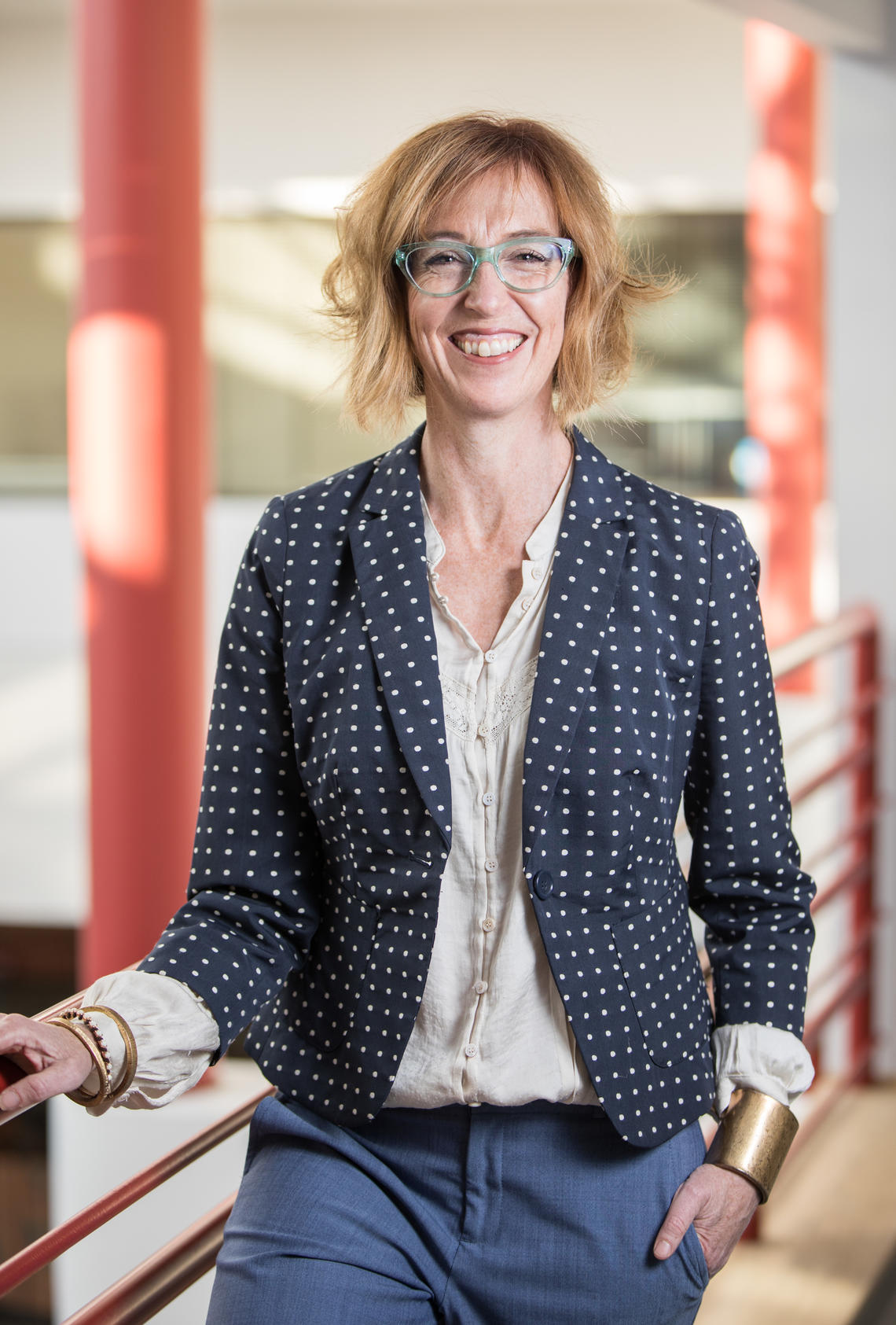June 10, 2019
Teaching Scholars' research projects investigate the needs of today's learners

When learning goes well, it causes students to draw from their critical and creative abilities. Why is it so important to engage students in these kinds of thinking processes?
Ask University of Calgary Teaching Scholars Beth Archer-Kuhn, Michele Jacobsen, Cari Din and Martin MacInnis. Supported by the Taylor Institute for Teaching and Learning, the University of Calgary Teaching Scholars program helps educators across campus enhance their leadership. It fuels initiatives that enrich the quality of teaching and learning on campus, providing recipients $40,000 over three years to implement their projects. The program encourages faculty to influence change within and across disciplines, engage other colleagues and participate in an interdisciplinary community of practice.
“The impact of the 2016-2019 University of Calgary Teaching Scholars program exceeded our expectations,” says Dr. Natasha Kenny, PhD, senior director at the Taylor Institute for Teaching and Learning. “The initiatives have positively affected learning for thousands of University of Calgary students across disciplines, and have raised the university’s teaching and learning reputation through dozens of scholarly outputs at local, national and international levels. This program provides an important opportunity for faculty across campus to develop and amplify their educational leadership skills and abilities in order to transform teaching and student learning.”
Among this year’s Teaching Scholars is Dr. Michele Jacobsen, PhD, vice-dean at the Werklund School of Education. She is putting her initiative toward enhancing faculty development for graduate supervision in interdisciplinary online learning.
“As a Teaching Scholar, I aim to lead improvements in graduate supervision practices through faculty development, and to impact graduate student academic success and engagement across the university,” she notes. “I look forward to engaging with other Teaching Scholars, educational developers, diverse academic faculty members and other academic leaders in a cross-campus learning community that will enhance my own development as leader, researcher, teacher and graduate supervisor.”
Meeting the educational needs of today’s learners
From the Faculty of Kinesiology, Dr. Cari Din, PhD and Dr. Martin MacInnis, PhD are using their Scholars funding to develop a project exploring experiential learning through systematic reflection and a community of practice. Din says the idea for the project emerged when she and MacInnis were discussing students’ varying reactions to “following recipes” in the lab.
“Martin mentioned how problematic it can be to give students recipes to follow in labs,” she recalls. “I shrieked when he said this. I remember slapping the table with my hand and saying something like, ‘Martin! I have students in my classes who want more of a recipe, and they ask me for something more like the ones they are given in labs! Let’s do something about this.’ That may come across as scripted, but it wasn’t. It reminds me how important conversations about teaching and learning are between colleagues.”
Reflecting on the resulting research project that he undertook with Din, MacInnis says, “Students pursuing careers in science will always need to be learning and investigating. A lab that is designed to simply recreate a known result and present that result is a lost opportunity to help students become more critical and creative. We want students to reflect on the process, to develop the skills of good scientists.”
From the Faculty of Social Work, Dr. Beth Archer-Kuhn, PhD is putting her fund toward a project titled Shifting Educational Practices with Inquiry-Based learning: Aspiring to Meet the Educational Needs of Today’s Learner. Like Din and MacInnis, she emphasizes the value of experiential learning.
She describes inquiry-based learning as a student-centered classroom approach. “It's about supporting students to be curious,” she explains. “The role of the instructor in inquiry-based learning is one of facilitator or guide. Today's learners require an ability to think critically, to plan, synthesize, analyze, evaluate, collaborate and communicate. These are the skills that students learn when engaging with inquiry-based learning.”

Cari Din is working with fellow Teaching Scholar Martin MaCinnis to explore experiential learning.
Connecting research with practice in teaching and learning
In addition to their shared interests in experiential learning, Jacobsen, Archer-Kuhn, Din and MacInnis hold similar beliefs about the importance of connecting research with teaching practice at the University of Calgary.
“I am ready and available to take part in and contribute to workshops and seminars in the Taylor Institute, to grow and share my knowledge and expertise in communities of practice, as well as actively promote the importance of ongoing, continuous faculty development among my peers across campus,” says Jacobsen.
Din says, “I think learning, teaching and research mutually enrich each other. I am looking forward to documenting our process and sharing our learning as teaching scholars. Martin and I are early career academics who are very inspired by the magic of learning.”
MacInnis seconds Din’s sentiment. “I hope that by addressing our teaching and learning questions scientifically and documenting the process, we’ll be able to share our successes and failures with others through presentations, reports and manuscripts,” he says.
Like Din, Archer-Kuhn sees an intrinsic connection between research and the learning process.
“Engaging in research about teaching/learning helps to inform my instructional approaches, while adjusting my teaching with this new knowledge and systematically observing and evaluating student learning informs my research,” she observes.
2020 Teaching Scholars research projects
Shifting Educational Practices with Inquiry-Based learning: Aspiring to Meet the Educational Needs of Today’s Learner
Dr. Beth Archer-Kuhn, PhD
From Following Recipes to Creating them: Enriching Experiential Learning in Labs through a Community of Practice and Systematic Reflection
Dr. Cari Din, PhD and Dr. Martin MacInnis, PhD
Enhancing Faculty Development for Graduate Supervision in an Interdisciplinary Online Learning Community
Dr. Michele Jacobsen, PhD and Dr. Hawazen Alharbi, PhD
Learn more
Learn more about the Teaching Scholars program here.
Learn more about the Taylor Institute for Teaching and Learning here.
